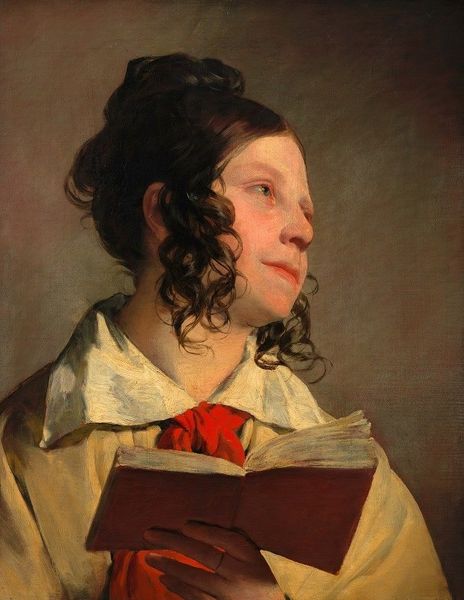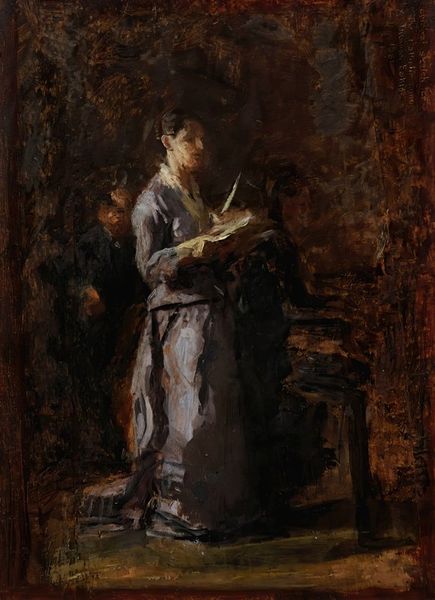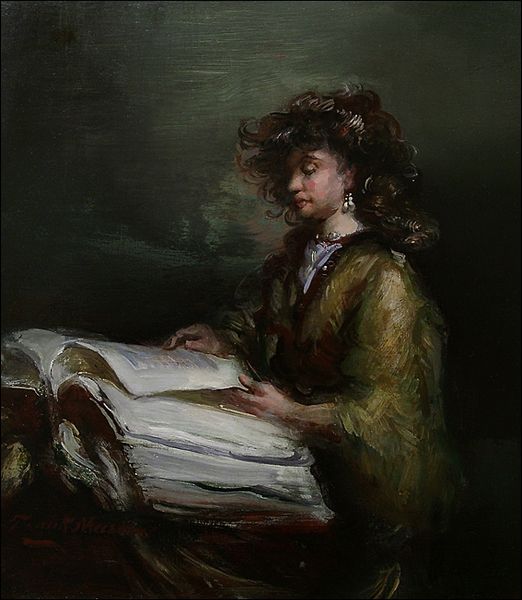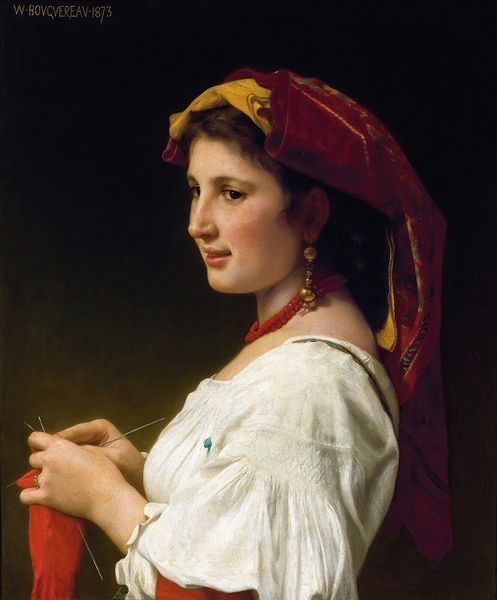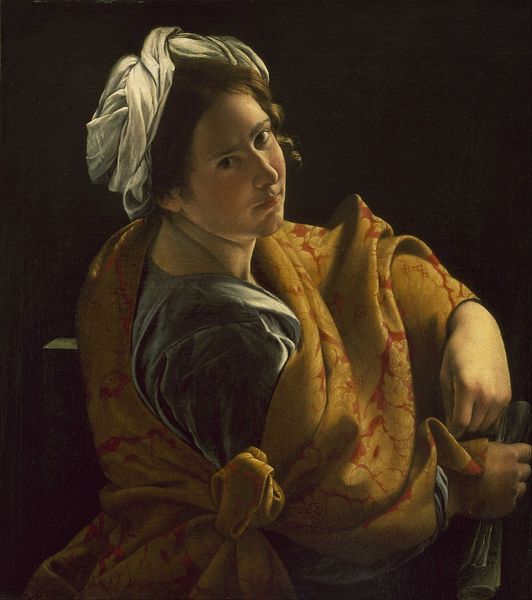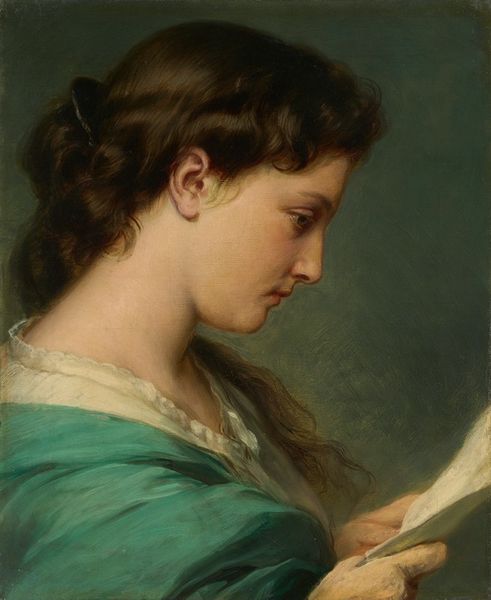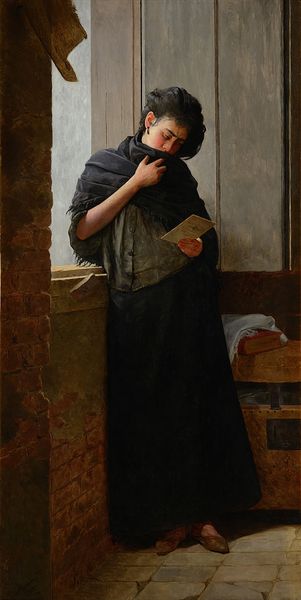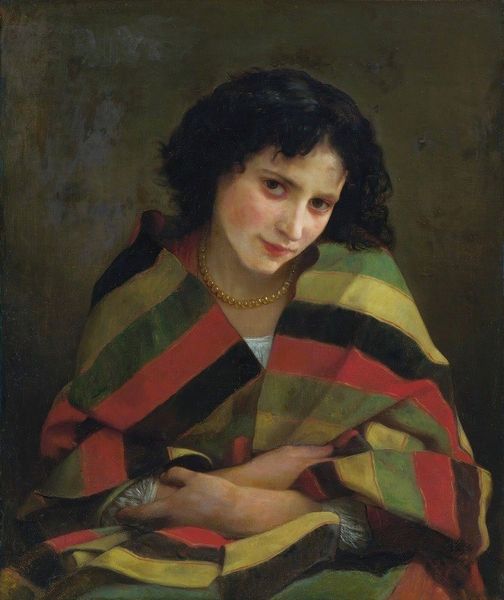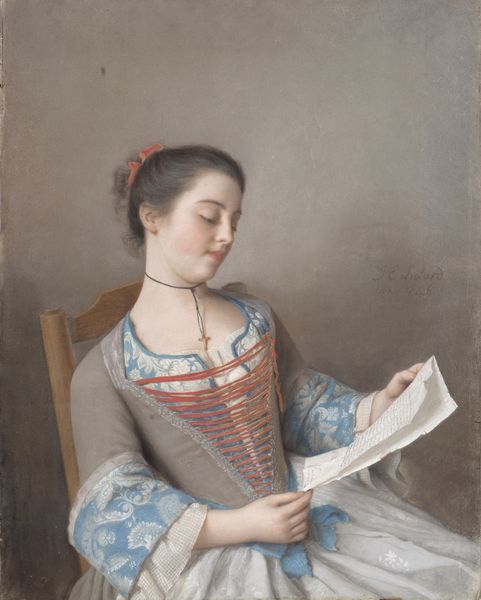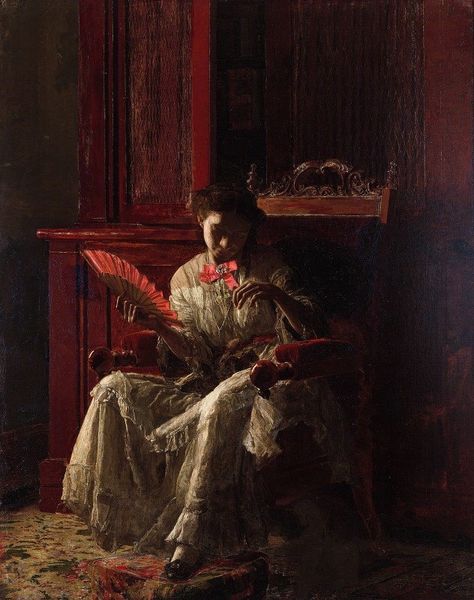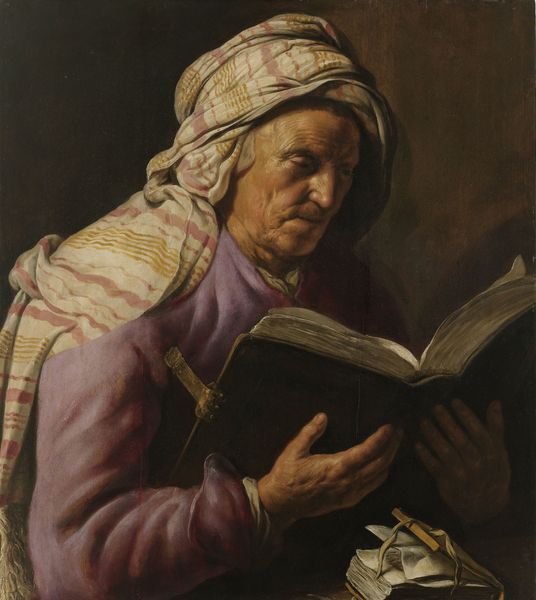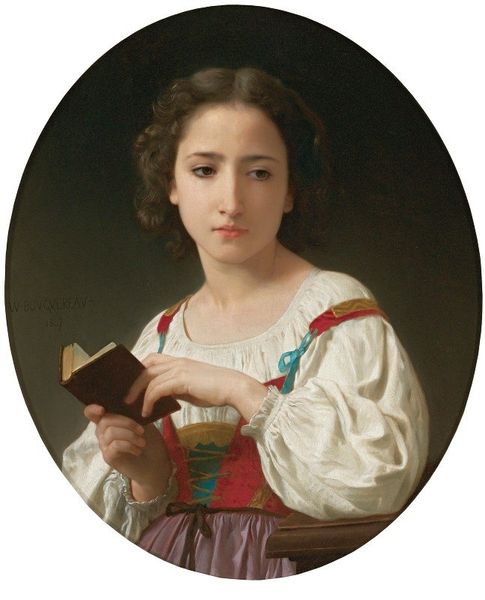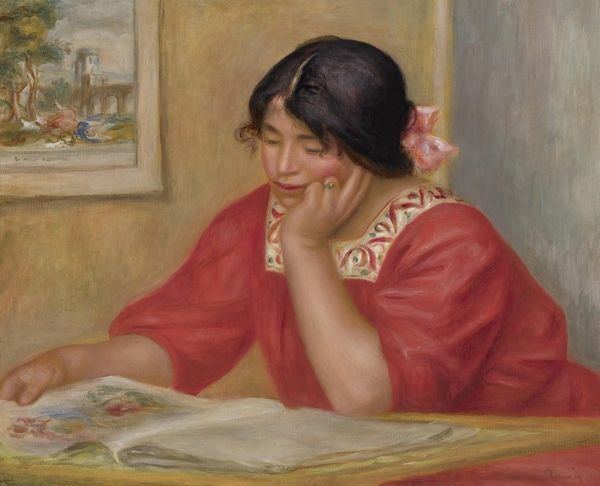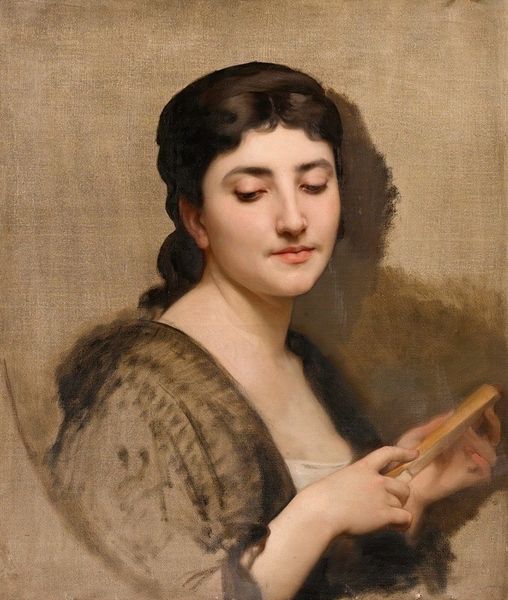
painting
#
portrait
#
figurative
#
character portrait
#
painting
#
figuration
#
portrait reference
#
portrait head and shoulder
#
romanticism
#
animal portrait
#
orientalism
#
animal drawing portrait
#
portrait drawing
#
genre-painting
#
facial portrait
#
portrait art
#
fine art portrait
#
digital portrait
Copyright: Public Domain: Artvee
Editor: Here we have Friedrich von Amerling's "The Young Eastern Woman" from 1838. The subject’s costume and the dramatic lighting really capture my attention. What do you make of it? Curator: The painting clearly speaks to the 19th-century European fascination with the "Orient." Consider the labor involved, though. Who wove those intricate textiles? Who produced the pigments for those vibrant dyes? This wasn't just about artistic vision; it was a globalized network of production and consumption. Editor: That’s a fascinating point! It is interesting to think of the social context through a Materialist lens. The painting seems so focused on aesthetics. Curator: And whose aesthetics are being served? Look at how the subject is exoticized. It raises important questions: What systems of power are at play here? How does the act of painting become a form of cultural appropriation, utilizing resources and labor extracted from other places? Editor: I hadn't considered it that way. I was mainly appreciating the... well, the painting itself. Curator: But “the painting itself” isn't a neutral object. The very act of representing her through a Western gaze has economic and social implications for the raw materials and the historical implications of how women, their work and material conditions were represented. The costuming of a specific, marketable fantasy flattens the lives of many into raw, exploitable resources. Editor: That is a different perspective! It shifts how I understand the painting's role in a broader cultural narrative, and the lives that factored into the cost of those raw materials to make the pigments for her portrait. Curator: Precisely! Considering materiality invites us to interrogate the production, circulation, and consumption of art, and understand their relation to the subjects depicted.
Comments
No comments
Be the first to comment and join the conversation on the ultimate creative platform.
